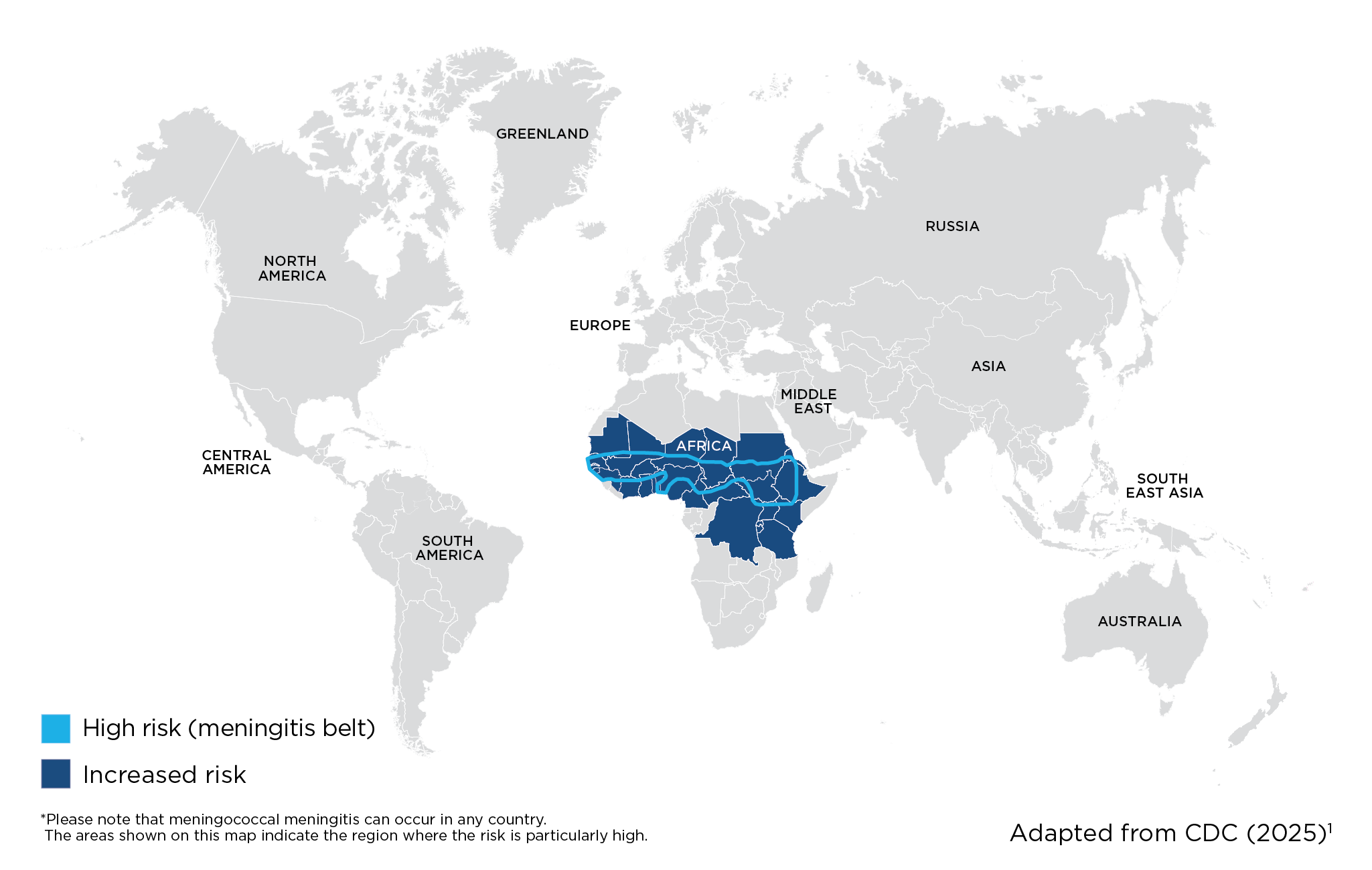About 10% of us carry the bacteria in our throats and it does not harm us. Getting meningitis is an unpredictable effect of carrying the bacteria.2
Disease video
Risk areas for Meningococcal Meningitis

FAQs
-
Key fact
-
How do you get meningococcal meningitis?
The bacteria can be spread through close contact with someone who is carrying the bacteria, such as through coughing, sneezing, kissing, or sharing eating and drinking utensils. Mass gatherings, such as religious pilgrimages, can increase the risk of transmission of the disease.2-4
-
Which countries are affected by meningococcal meningitis?
Meningitis can occur in any country but there are some areas, such as central Africa, where the risk is particularly high (see map). However, outbreaks can also occur outside of these high risk areas.1
-
What are the symptoms of meningococcal meningitis?
Common symptoms may include a stiff neck, fever, confusion, headaches, sensitivity to light, nausea, and vomiting. In more severe cases, other symptoms may develop, including a rash which is a sign of blood poisoning.3
-
How serious is meningococcal meningitis
Meningitis caused by bacteria can be fatal if it’s not treated quickly. Severe cases may lead to long lasting complications in around 20% of survivors, including hearing loss, seizures, limb weakness and difficulties with vision, memory and communication.3
-
Can I prevent getting meningococcal meningitis?
You can take the following precautions to help reduce your risk of infection:
- Visit your nearest convenient pharmacy or specialist travel health clinic for a risk assessment before your trip
- Avoid close personal contact (such as kissing), or living in dormitories or other shared environments with people who have symptoms of meningitis3,4
- Avoid sharing personal items such as eating and drinking utensils4
Ready to get started? Check now for your nearest travel health clinic.
Get friendly advice from the UK's largest network of travel clinics*.
* This list is not exhaustive and other travel health providers are available.
References
- Centers for Disease Control and Prevention. Yellow Book 2026. Meningococcal Disease. April 2025. Available online: https://www.cdc.gov/yellow-book/hcp/travel-associated-infections-diseases/meningococcal-disease.html (Last accessed May 2025)
- Centers for Disease Control and Prevention. About Meningococcal Disease. February 2024. Available online: https://www.cdc.gov/meningococcal/about/index.html (Last accessed May 2025)
- World Health Organization. Factsheets. Meningitis. April 2025. Available online: https://www.who.int/news-room/fact-sheets/detail/meningitis (Last accessed May 2025)
- Mayo Clinic. Diseases & Conditions. Meningitis. October 2024. Available online: https://www.mayoclinic.org/diseases-conditions/meningitis/symptoms-causes/syc-20350508 (Last accessed May 2025)
UK-BOTB-2500015 May 2025
